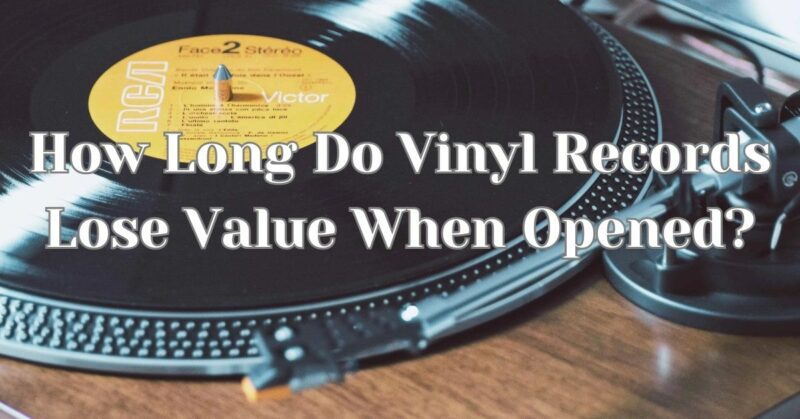Vinyl records have experienced a remarkable resurgence in popularity over the past few years, becoming a beloved medium for music enthusiasts and collectors alike. Many people are drawn to the tactile and analog experience of playing vinyl records, but some may wonder about the long-term value of their collections, especially once records are opened and played. In this article, we’ll explore the factors that can affect the value of vinyl records once they are unsealed and how collectors can ensure the longevity of their investments.
The Initial Value of Vinyl Records
Vinyl records, especially those released as limited editions, picture discs, or with unique packaging, can often appreciate in value over time, particularly if they remain unopened and in pristine condition. Collectors are often willing to pay a premium for records that are rare, in original shrink-wrap, or accompanied by original inserts and posters.
Factors Affecting Value After Opening
- Condition: The most significant factor impacting the value of an opened vinyl record is its condition. The better the condition, the higher the potential value. Proper storage and handling can help maintain the condition of a record, including the absence of scratches, scuffs, or warping.
- Original Packaging: While opening a record generally decreases its value, keeping the original packaging, such as the album cover, inner sleeves, and any inserts or posters, can help retain some of its value.
- Limited Editions and Rarity: Records that were initially released as limited editions or are considered rare can still hold value even when opened, especially if they are well-preserved and sought after by collectors.
- Artist and Album: The popularity and significance of the artist or album can also influence the value of a vinyl record. Iconic albums or artists tend to have more enduring value.
- Historical Significance: Records associated with historical moments or events may maintain or increase their value over time, regardless of whether they are opened or not.
- Pressing and Manufacturing: Some collectors prefer specific pressings or manufacturing details that affect the sound quality. Records with unique pressings or mastering can hold their value better.
- Genre and Demand: The genre of music can impact a record’s value. Certain genres have dedicated collector communities willing to pay more for particular albums.
Preserving Value After Opening
If you’ve opened a vinyl record but still want to preserve its value as much as possible, consider the following tips:
- Proper Storage: Store your records vertically in a cool, dry place, preferably in plastic or polythene inner sleeves to prevent dust and scratches.
- Handle with Care: Always handle records by the edges to avoid leaving fingerprints or oils on the grooves.
- Clean Before Playing: Use a carbon fiber or anti-static brush to remove dust and debris before playing the record. Clean the stylus (needle) regularly to prevent damage.
- Invest in Quality Equipment: Use a high-quality turntable and audio equipment to ensure that you get the best sound quality without damaging the record.
- Protect the Album Cover: Keep the album cover in good condition, as it can significantly impact the overall value of the record.
Conclusion
While opening a vinyl record can affect its value, it’s important to remember that the primary purpose of vinyl records is to be enjoyed. Collectors may still derive immense satisfaction from playing their records and appreciating the music. By taking care of your vinyl records, preserving their condition, and considering the factors mentioned, you can maximize their potential value while enjoying the unique charm of this timeless medium. Ultimately, the value of a vinyl record is not just monetary but also intrinsic in the joy it brings to its owner.


